Politics
Obasanjo Knelt Down For Atiku In 2003 -Wole Soyinka

Former President Olusegun Obasanjo knelt down for then Vice President Atiku Abubakar in his desperate bid to secure the ticket of the Peoples Democratic Party (PDP) for the 2003 poll, according to Professor Wole Soyinka.
The revelation came yesterday as the Nobel laureate gave a rare insight into the high-stake lobbying and negotiations that preceded the PDP’s presidential primaries in which Atiku was highly favoured to win at the expense of his then boss Obasanjo.
Besides, Soyinka spoke on how genuine efforts by Chief Bola Ige to reposition the energy sector as Power Minister between 1999 and 2000 were sabotaged by Obasanjo.
Soyinka was replying a question at a special reading session to mark the presentation of his latest book, “Quis Custodiet Ipsos Custodes?: Gani’s Unfinished Business”, at the Freedom Park, Lagos.
Speaking at the event, Mr. Louis Odion, one-time Edo State Information Commissioner and The Nation columnist, asked the literary giant whether he believed a sensational claim last year by Ekiti State Governor Ayodele Fayose of witnessing Obasanjo going down on his knees in Tripoli before the late President Muamar Ghaddafi in his desperate bid to secure the Libyan strongman’s support for an extension of his chairmanship of the African Union (AU), since the former Nigerian President has neither denied nor confirmed the account.
Fayose’s account was published by an Abuja-based monthly magazine, The Interview.
Ghaddafi was younger than Obasanjo. Libya is smaller in size and population compared to Nigeria.
Responding, Soyinka said he had no cause to doubt Fayose, given his knowledge of how Obasanjo did the “unthinkable” when his aspiration for a second term in office was similarly threatened in 2003.
Said he: “Before the PDP primaries in January 2003, Obasanjo got everyone he knew could reach me on the surface on the earth including Yemi Ogunbiyi and my son, to get me to help him intercede when it was clear that (Abubakar) Atiku was in a position to take his job. He knew Atiku had a lot of regard for me and calls me ‘Uncle’.”
In the now famous BBC interview few days to PDP’s 2003 primaries, Atiku had declared that he was under tremendous pressure from his supporters to contest the ticket against Obasanjo but was yet to make up his mind in what triggered panic in Obasanjo’s camp.
“The pressure was intense,” the literary giant recounted. “Of course, I could not have knelt before Atiku not to embark on a course of action that would lead to his boss’ disgrace. But I can confirm to you that Obasanjo as President knelt down before Atiku so that he would not lose his job.
“But I warned Atiku that for making Obasanjo to kneel down for you, be sure you would have to pay heavily for that. I guess my warning came to pass if you remember Atiku’s dramatic change of fortune once Obasanjo was sworn in for a second term of office.”
As expected, yesterday’s book reading turned out a day of reminiscences of many bizarre dramas and unsavory episodes that characterised Obasanjo’s reign as two-term president betweeen 1999 and 2007. The panel of disscussants included frontline rights activist-lawyer Femi Falana (SAN) and Mr. Sam Omatseye, author and Chairman of “The Nation” Editorial Board, and was moderated by Mr. Kunle Ajibade, award-winning author and Executive Director of “TheNews/Tempo”.
The roll-call at the event included literary colossus Prof. J. P. Clark, Colonel Tony Nyiam (retd) and Mr. Jahman Anikulapo.
Dispelling the notion that the long-running disagreement he has with Obasanjo is personal, Soyinka said his motivation is the desire that those he described as cause of the nation’s problems do not continue to recycle themselves as the solution.
He also dismissed Obasanjo as a hypocrite for denying that he did not have a hand in the third term agenda in 2006.
Said the playwright: “I remember I was invited to a conference in Germany around the time the third term game was unfolding in Nigeria. Then, I received thi
Politics
Nigeria on the Brink of Historic Expansion: New States to be Created
A major development is underway in Nigeria, as the Senatorial Committee’s nationwide tour on state creation has reached its conclusion. The committee’s efforts are expected to lead to the establishment of new states across the country’s six geopolitical zones.
Here are the proposed new states:
South West:
- Ijebu State (from Ogun State)
- Ibadan State (from Oyo State)
South East:
- Anim State (from parts of Anambra and Imo States)
- Adada State (from Enugu State)
South South:
- Toru-Ibe State (from parts of Ondo, Edo, and Delta States)
- Obolo State (from Akwa Ibom State)
North East:
- Savanna State (from Borno State)
- Amana State (from Adamawa State)
North West:
- Tiga State (from Kano State)
- Gurara State (from Southern Kaduna)
North Central:
- Okura State (from Kogi State)
- Apa State (from Benue State)
This historic expansion is poised to reshape Nigeria’s political landscape and usher in a new era of development and growth.
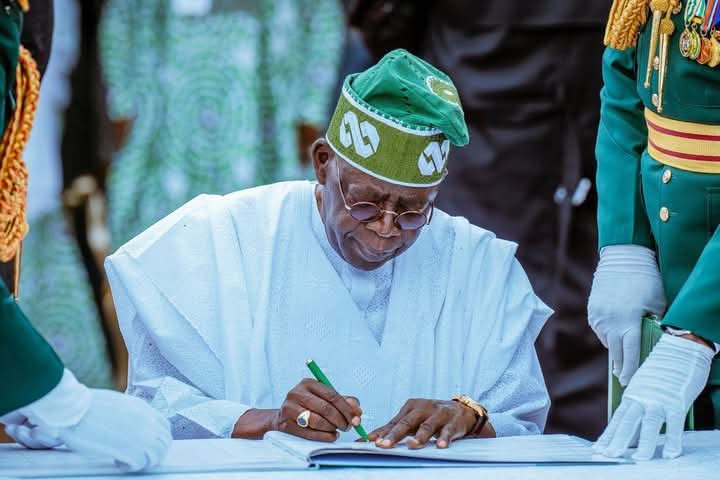
News
Former Nigerian President Muhammadu Buhari Dies at 82
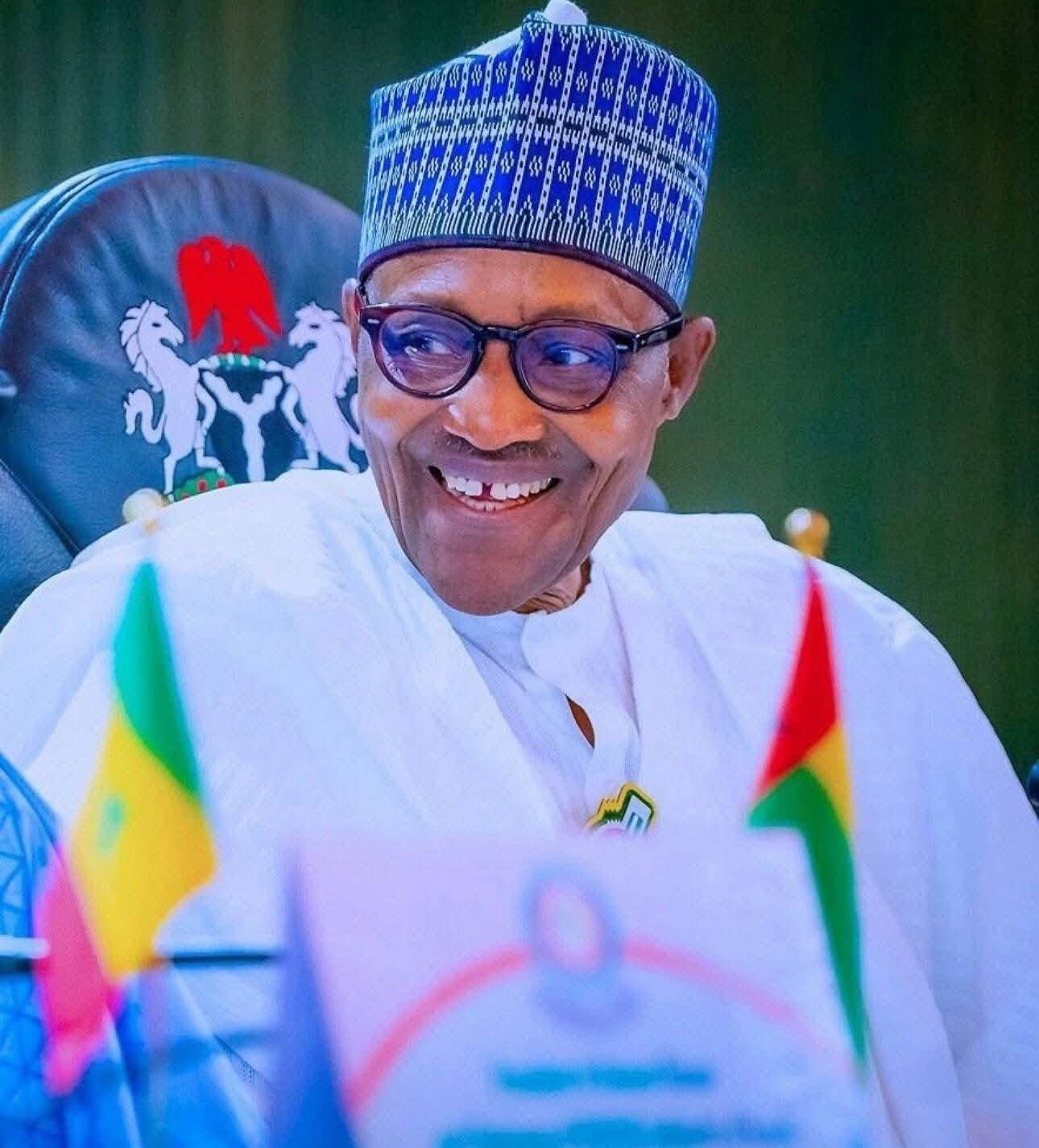
Nigeria is in mourning as news breaks of the passing of former President Muhammadu Buhari. The elder statesman reportedly passed away in the early hours of today at the age of 82.
Buhari, who served as Nigeria’s President from 2015 to 2023, was known for his anti-corruption stance, military background, and strong influence on Nigeria’s political landscape for over four decades. Before his civilian presidency, he also ruled as military head of state from 1983 to 1985.
Sources close to the family confirmed his peaceful passing at his Daura residence in Katsina State, surrounded by loved ones. Official statements from the presidency and his family are expected soon.
Tributes have started pouring in from across the nation and beyond, recognizing Buhari’s role in shaping Nigeria’s democratic journey and his dedication to national security and infrastructural development.
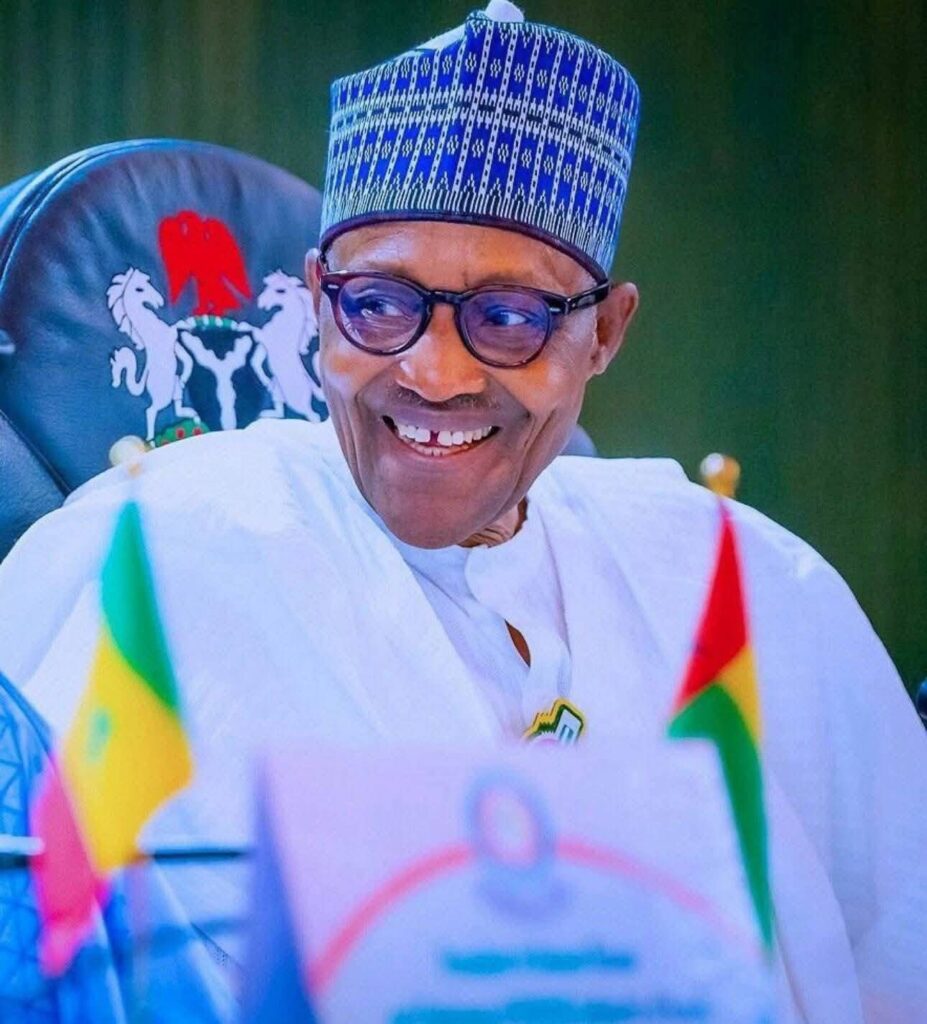
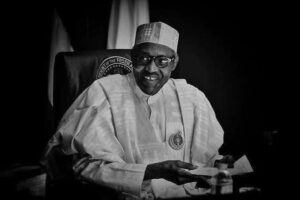
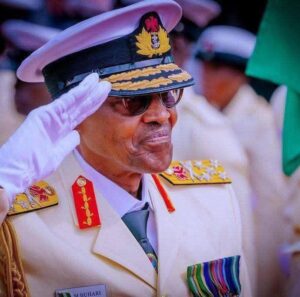
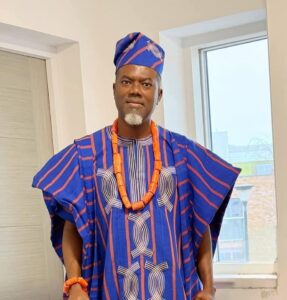
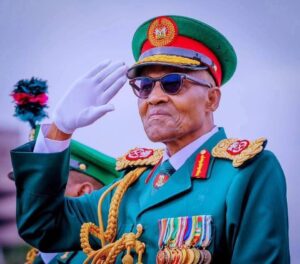
News
Akpabio Removes Natasha Akpoti as Chairman of The Senate Committee on Diaspora and NGOs
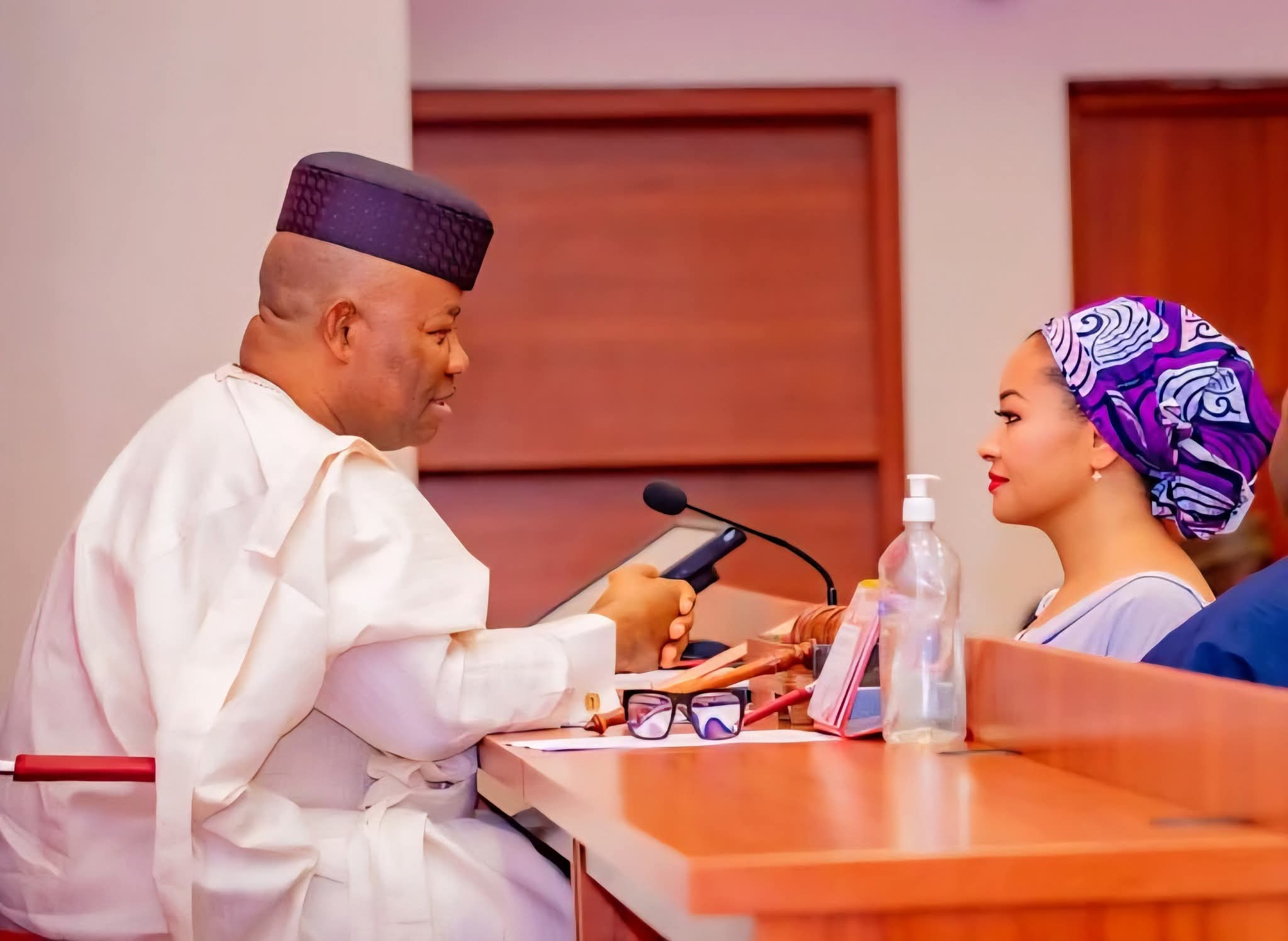
Senate President Godswill Akpabio has made a major change in the leadership of the Senate Committee on Diaspora and NGOs.
Senator Natasha Akpoti-Uduaghan has been removed as the Chair of the committee, and a new replacement has been named immediately.
Although no official explanation was given at the time of the announcement, the development has sparked conversations in political circles. Senator Natasha, known for her passion in representing diaspora-related matters, has not yet reacted publicly.
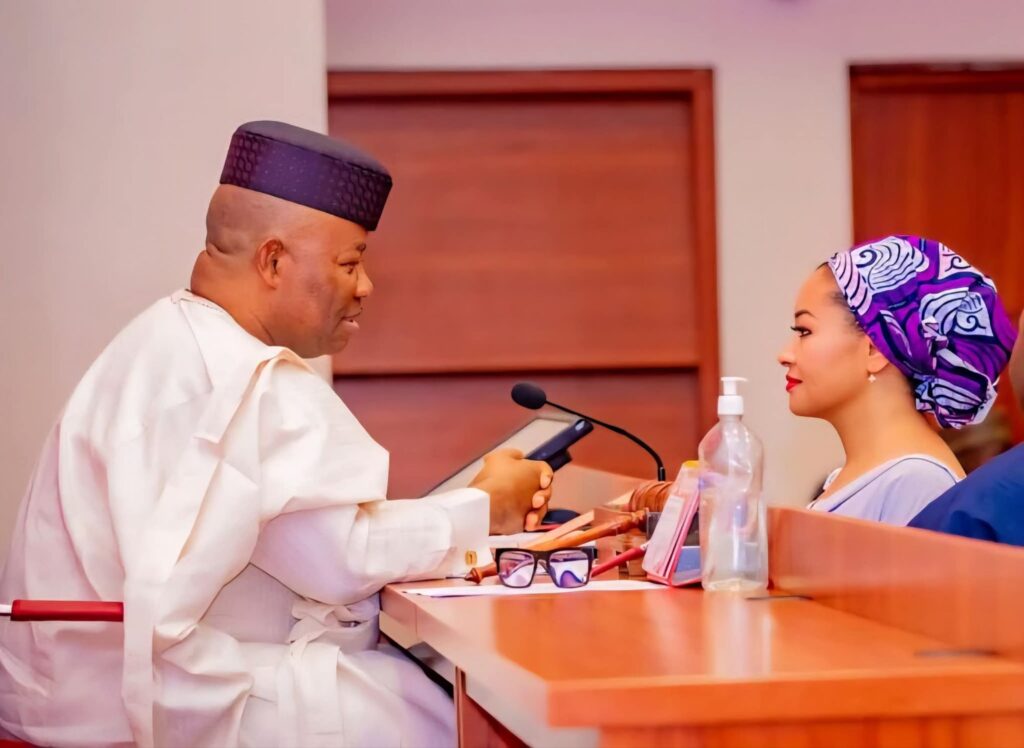
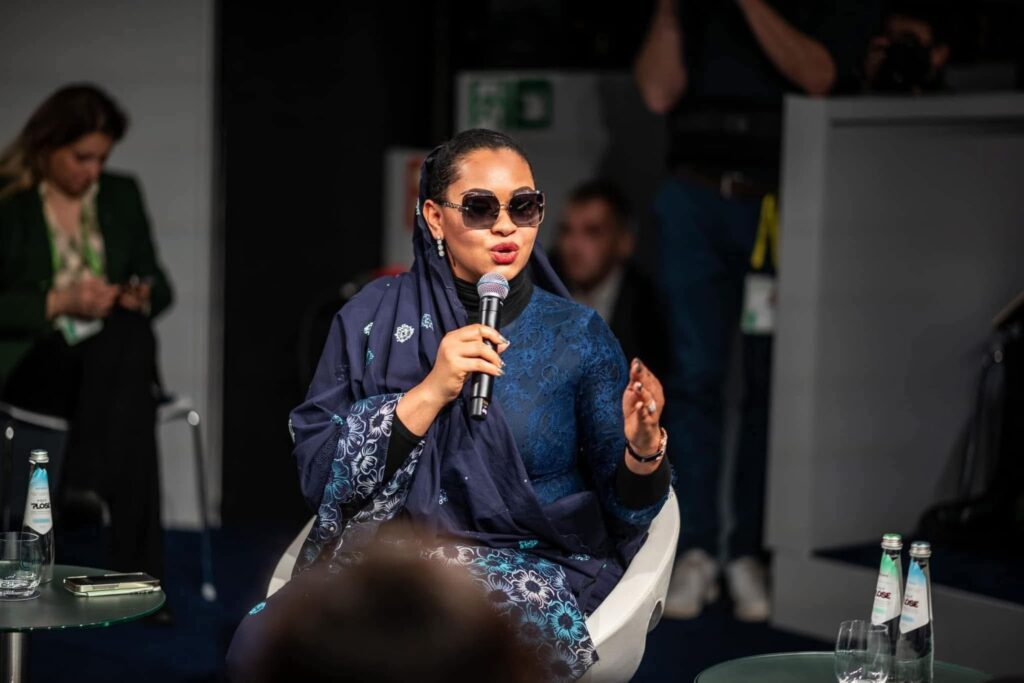
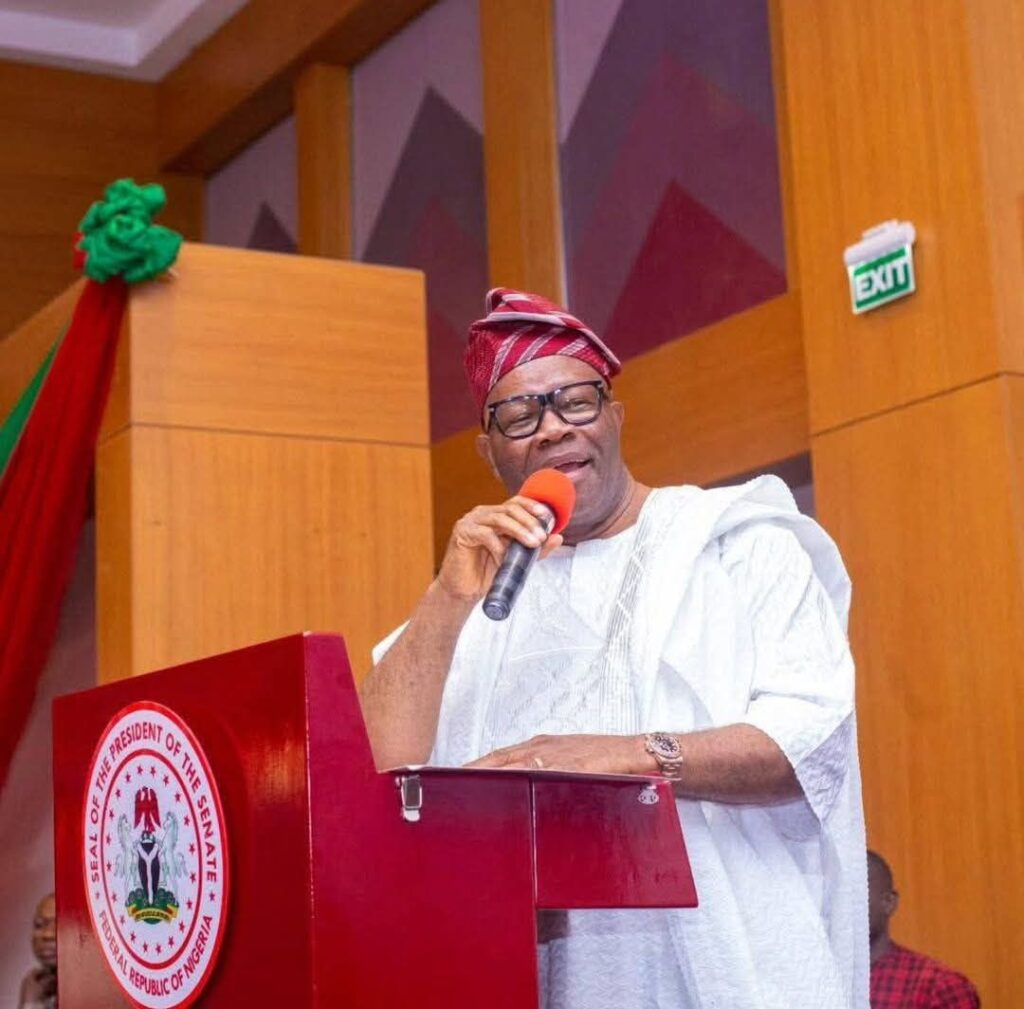
-

 News1 year ago
News1 year agoHardship: We Plan To Establish A National Commodity Board To Crash Food Prices – VP Shettima
-
News7 years ago
Blog Reader; Samson Osagiede Celebrates Fiancè Benedicta Daniels’s Birthday With Sweet Words
-
Home9 years ago
News Channel claims Donald Trump is an orphan from Pakistan,share alleged childhood photo
-
Home9 years ago
Another $175m Found in Patience Jonathan’s wife’s firm’s Bank Account
-
Home9 years ago
Oil Spillage: House of Reps Member Shares Photos of the Water her Constituents Drink .
-
Home9 years ago
Zara Buhari & Ahmed Indimi’s Wedding Access Card
-
News7 years ago
The Best Video You’ve Seen Today?
-

 Sport7 years ago
Sport7 years agoModric, Marta Wins 2018 FIFA Best Player Of The Year Awards ⚽️
